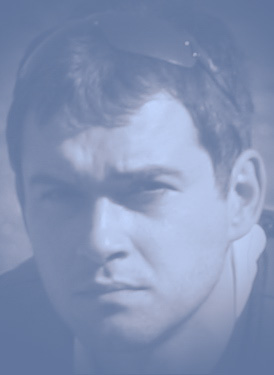Niall Ferguson (GBR) * 18.04.1964
Niall Campbell Douglas Ferguson (born April 18, 1964) is a British historian. His specialty is financial and economic history, particularly hyperinflation and the bond markets, as well as the history of colonialism.
Ferguson, who was born in Glasgow, is the Laurence A. Tisch Professor of History at Harvard University as well as William Ziegler Professor of Business Administration at Harvard Business School. He was educated at the private Glasgow Academy in Scotland, and at Magdalen College, Oxford.
Ferguson's books include Empire: How Britain Made the Modern World, The Ascent of Money: A Financial History of the World and Civilization: The West and the Rest, all of which he has also presented as Channel 4 television series.
In 2004 he was named as one of the 100 most influential people in the world by Time magazine. He is currently a contributing editor for Bloomberg Television and a columnist for Newsweek. He is currently working on the official biography of Henry Kissinger to whom he has been granted unprecedented access.
Ferguson was born the son of a doctor father and a physics teacher mother in Glasgow on April 18th 1964, and lived for a time near Ibrox Park. He attended The Glasgow Academy.
Ferguson cites his father as instilling in him a strong sense of self-discipline and of the moral value of work, whilst his mother encouraged his creative side.His journalist maternal grandfather encouraged him to write. Unable to decide on studying an English or a History degree at university, Ferguson cites his reading of War and Peace as persuading him towards History. Of late 1970s Glasgow, Ferguson describes "the main industries" of the city as "sectarianism and strike action".
Ferguson received a Demyship (half-scholarship) at Magdalen College, Oxford, graduating with a first-class honours degree in History in 1985. Whilst at Oxford he became best friends with Andrew Sullivan based on a shared love of right-wing politics and punk music. He became a Thatcherite by 1982, identifying the position with "the Sex Pistols' position in 1977: it was a rebellion against the stuffy corporatism of the 70s." Whilst at university "He was very much a Scot on the make...Niall was a witty, belligerent bloke who seemed to have come from an entirely different planet," according to Simon Winder. Ferguson has stated that "I was surrounded by insufferable Etonians with fake Cockney accents who imagined themselves to be working-class heroes in solidarity with the striking miners. It wasn't long before it became clear that the really funny and interesting people on campus were Thatcherites."
Rachel Johnson has said of Ferguson at the time:
He was attractive. He was clever. And I still remember him making me sob with laughter by describing how a man feels if he succeeds in bringing a woman to orgasm (like Jesse Owens at the Olympic stadium in Berlin, he said, raising his arms aloft).
Johnson commissioned Ferguson to write an essay for a collection:
Ferguson's piece was one of the first to come in. I can't remember much about it, but it wasn't quite the ticket. I remember sending him a photocopied letter that I was sending to all the contributors, with suggestions, pertaining to his essay, at the bottom. I found his reply in my pigeonhole, a few days later. "Dear Rachel Johnson," it read. "F--- off. Yours, Niall Ferguson." I assumed that he wanted nothing to do with the book again, so I re-commissioned the piece.
Regarding slights and criticism, Ferguson has stated: "Nobody should ever imagine that they can do that kind of thing to me with impunity. Life is long, and revenge is a dish that tastes best cold. I'm very unforgiving."
Ferguson thus went on to attack Johnson's collection of essays (minus his own contribution) in a newspaper review.
At Oxford, Ferguson improved his German by reading Nietzsche whilst drinking Guinness in the pub with Norman Stone.
Source: http://en.wikipedia.org/wiki/Niall_Ferguson

|

